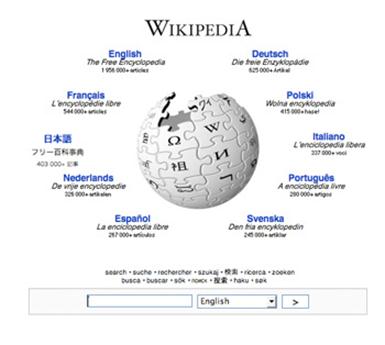A lazy Sunday afternoon, I picked up my backpack and entered the relaxed office of Centre for Internet and Society. The occasion was a Wiki Meetup. My first and as I would learn, first for most of the ten people present there. The meetup officially started with a gang of boys walking in, mostly dressed in black, denims, floaters, and laptop bags. No, none of them were wearing specs (except me). Gautam, the conveyor of the meeting said hello and gave us all the wireless code to internet. Internet unfortunately was down.
No women, except me. All engineers mostly, except a couple of advocates and one motley writer (me).
All sat down, opened their respective laptops and started typing or browsing. Imagine a group of people, all casually sitting on plastic chairs, laptops in their laps, quietly typing away in their keyboards. The silence was a surprise. Always interested in group behavior and body language, I also noticed that most of the techie boys, as I was calling them in my head, had black laptops with colourful stickers on it displaying the brands they were proud to be associated with. Other than your obvious Ubuntu, one saw stickers from conferences like Open Hack, NGOs like Pratham Books and others. Their relationship with their keyboard seemed more interesting than their relationship with the person sitting next to them. A whisper in a sidebencher’s ear went through typing. Talking while you are looking on your laptop screen was not considered social suicide. It was the cool thing to do.
It was deathly quiet. As one of the seasoned Wikipedians (I didn’t introduce myself to him and was daydreaming when he introduced himself to the group) started to give an intro to most of the newbies—engineering college students and a vague writer like me. We got to know how one should contribute to Wiki, the same rules I was taught in my Masters for submission of criticism and assignments—keep a religious track of references, don’t make up things (never followed this one) and don’t believe what is said, believe what is written down somewhere. A good question asked was about oral histories and how does one write about those. Apparently, they have to be written down somewhere before they become worthy of an online entry into Wikipedia as a reference (didn’t know that). Wish this obsession with references gets over, especially when it comes to the varied, colourful, creative means of converting a fact into a story, which Indian oral histories excel it.
But then, most of us today will be uncomfortable with that. And that is an uncomfortable state of being, no? I was reminded of a story on Wikipedia I did for Digital Natives website recently where I was left wondering who the invisible writers / volunteers of articles to Wiki from India are. Now I finally met them. Was feeling good about that. If someone has a doubt that Wikipedia gets self-promoters or people with dubious designs, they should have looked at these faces. Most students, there to learn and do their bit in knowledge sharing.
Oh, well. Maybe some people would consider them clueless to write on Bharatnatyam and still double check. These same people call students the copy-paste generation. Dubious people remain dubious, don’t they?

